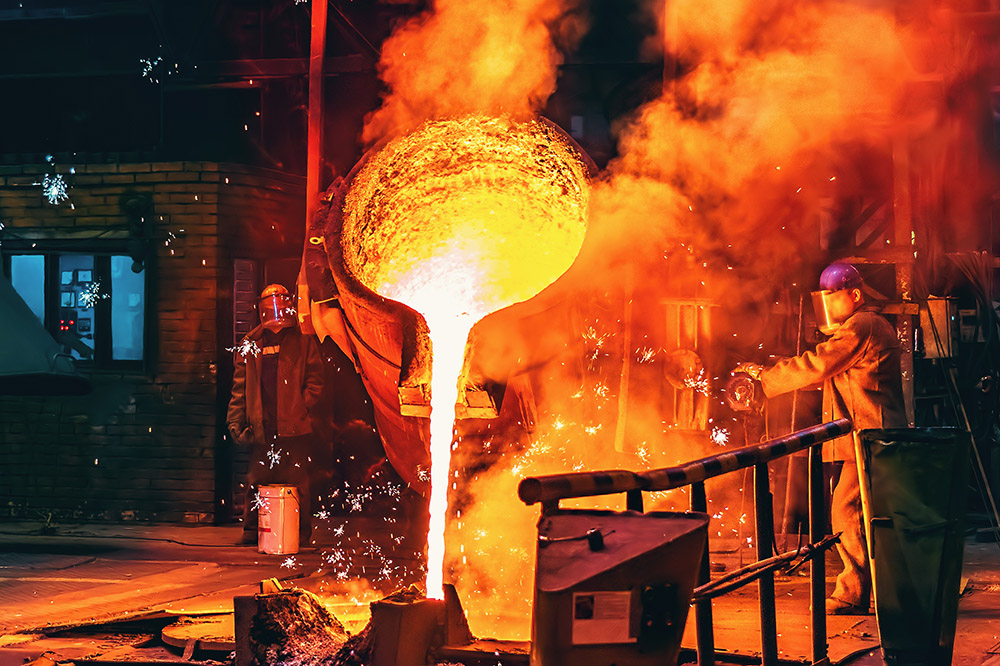Parties to the Agreement for the Metal Sector strengthen confidence in a productive fourth year
The parties to the IRBC Agreement for the Metal Sector can look back on a productive year. Trust between the parties was strengthened. This resulted in active new collaborations on themes such as health and safety in mines and the risks of child labor in metal recycling. In addition, thanks to training, companies' knowledge of international responsibility business conduct (IRBC) increased. All this can be read in the fourth annual report (2022-2023).
 © AdobeStock / Dmitry Volochek
© AdobeStock / Dmitry Volochek
Collaboration on the ground
Companies, industry associations, the government, trade unions and NGOs in the agreement have worked intensively together this year. Working visits and knowledge exchange resulted in greater mutual understanding. Parties now know how to find each other well and actively collaborate on various themes. For example, CNV Internationaal, Tata Steel and Wuppermann Staal have gained more insight into the health and safety risks in mines in Bolivia and Peru thanks to interviews with workers and stakeholders. The results are actively shared with partners within and outside the agreement to improve working conditions surrounding mining in this region. The lessons learned can also be used to tackle risks in other countries or in the extraction of other metals.
In addition, Global March Against Child Labor and Krommenhoek Metals jointly mapped the risks of child labour in the metal recycling chain in India. This research has led to concrete results and important insights. However, collaboration with local partners and production locations proves difficult. Collaboration is currently being sought with other metal recycling companies to increase the impact through a joint project and gain more insight into the conditions at specific processing locations.
Knowledge exchange
Knowledge exchange also took place in the Netherlands. In the context of the circular economy and responsible metal recycling, a round table discussion was organised with companies, NGOs, ministries, experts and the industry association. The conversation revealed challenges and opportunities, such as transparency in the chain, the stimulating or slowing effect of legislation and regulations and opportunities for innovation. In addition, knowledge sessions were organised on the preparation for the 'LME Responsible Sourcing Requirements', the risks of child labor in the production of mica in India and Madagascar, the risks in manganese mines in South Africa and on future legislation in the field of sustainability for the metal sector.
Monitoring
The annual monitoring shows that companies are making progress in the application of due diligence. This year, 11 of the 12 companies published their IRBC policy and 8 companies used the assessment tool to monitor their progress in applying the OECD guidelines. One company joined in year 4 and was therefore not yet able to participate in the annual monitoring. 7 of the 11 companies also provided a risk analysis. In addition, two companies (Van Peperzeel and E-MAX) have indicated that they will leave the agreement after year 4.
This year, civil society organisations paid working visits to companies to investigate how they can more actively support companies in the application of due diligence. In addition, practical two-day due diligence training courses were organised to increase knowledge among companies within and outside the agreement.
Looking forward
The collective projects will be further developed in the fifth and final year of the agreement. Collaboration is also actively sought with companies and stakeholders outside the agreement to share knowledge and increase awareness of the importance of ICSR in the sector. The already affiliated companies are helped to further improve their due diligence efforts. The parties are also conducting discussions about the continuation of sectoral cooperation within the metal sector after the end of the agreement, which initially came into effect as a partnership for 5 years.
